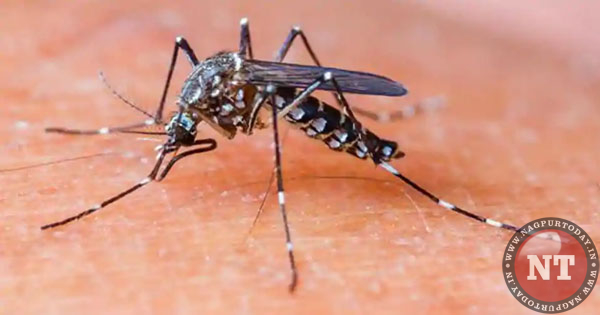Nagpur: It was late eighties when the disease broke out in its new “Avtar” the Dengue hemorrhagic fever in India on a large scale. Surat city was one of the first few places which suffered its initial onslaught. It remained confined to limited areas till nineties but thereafter it has engulfed the whole country.
Despite yearly outbreaks, people at large have careless attitude towards this menace. People expect municipal corporations particularly health authorities to deal with the problem. Aedes Agypti the vector which transmit dengue viruses to human beings is a highly domesticated mosquito. It has certain characteristics which makes them difficult to control leave aside elimination.
Female Aedes feels very hungry in a hot and humid climate the one which prevails during September and October. It needs five to eight human blood meals for its egg laying. In the bargain, infected mosquito would transmit Dengue viruses and to many people thereby spreading disease like wild fire across the city.
Unlike anopheles, the malaria mosquito, which feeds primarily during night hours, Aedes bite during day time and thereby makes our barrier systems like mosquito net, and repellents redundant.
Besides homes, school and working places like offices etc are also the common places where this mosquito spreads the disease.
What should be done to overcome the problem?
Aedes Agypti like to lay their eggs in clean and stagnant water, if we take due precautions we can avoid mosquitoes access to egg laying.
(1) Mosquitoes have great liking for black surface. Their first choice is our overhead big black water storage tanks. If tank lid is loose, not tightly closed then mosquitoes can enter these tanks and lay their eggs there. Hence keeping our overhead tanks tightly closed is very important preventive measure.
(2) Water plants like money plant is next important egg laying site. It is advisable not to keep water plants; empty the pot & clean it thoroughly every third day if you wish to keep water plant. Similar precautions to be observed if you keep big decorative earthen pot in your garden.
(3) During monsoon there may be water pools in and around your home, school or working place; fill up such pools with clay or put kerosene oil that will kill eggs.
(4) Water storing pots should always be kept tightly covered, should be vacated at least every third day and thoroughly cleaned, water interface should be particularly be wiped dry.
(5) Dress your children with full sleeves shirts & pants particularly when they go to play in lawns & gardens.
It is imperative that every citizen understands the disease transmission and does every bit to reduce it, which is the only way we could defeat this disease.
…BY
Dr Uday Bodhankar,
Executive Director of COMHAD UK, Nagpur
















